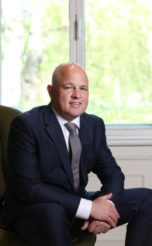Businesses need long-term PR strategies – CIPR State of the Profession report 2017
20 March 2017 By Northern Lights
The Chartered Institute of Public Relation’s (CIPR) annual barometer of the PR industry in the UK has been published and it reveals that businesses are responding to the challenging media landscape by focussing on strategy.
The CIPR’s State of the Profession 2017 shows a dramatic shift to strategic planning as PR professionals work to ensure they can deliver maximum value to organisations in a world rocked by alternative facts, post-truth and wildly-inaccurate opinion polls.
This shift in focus carries valuable lessons for businesses who need to think beyond the tactics of one-off PR “hits” in the media or online and start thinking about long-term strategies that work towards measurable goals and help to build a connected social community of customers who remain loyal to your brand.
Fighting PR spin and alternative facts
The thrust of the report focuses on a move towards a more professional PR industry, where bespoke qualifications lead to higher standards and better – more measurable – results for business leaders.

Stephen Waddington, partner and chief engagement officer at Ketchum and visiting professor at Newcastle University, suggests this continuing move to higher professional standards is a reaction to the shifting political landscape and the public’s growing disdain for PR “spin” and misinterpreted “facts”.
Drawing on failed predictions for the 2014 UK General Election, the Brexit vote, US elections and Donald Trump’s mastery of feeding a frenzy of falsehoods, Stephen says: “In 2016, messages published to social networks, whether true or false, quickly became accepted wisdom within a community, even if they were nonsense.
“Just how much influence issues like fake news had on the UK referendum and US election is yet to be determined. Whatever the case, it’s beholden on communicators to be honest in their communication. B******t and spin have no place in modern public relations.”
This is a view shared by Robert Phillips, author of the book Trust Me, PR is Dead, who says the PR industry must take responsibility for the post-truth age.
He explains: “It is the angry product of decades of half-truths, spin and naked deceit – piled on social exclusion and justice; crippling austerity; excessive pay ratios; and overall, a nasty disregard for the have-nots.”
The lesson from this is that businesses need to think very carefully about “spinning” the facts or bending the truth in their pursuit of publicity. In an age where all of the information in the world is available at your fingertips, lies and false facts will quickly be exposed and your brand will be damaged.
What does good PR look like?
But, what does good PR look like in 2017 and how can your business make sure it delivers value and profits?
The State of the Profession report says strategy and a long-term vision is critical. The report polled more than 1,500 PR practitioners across the country and looked at issues ranging from the impact of Brexit to what the future has in store for the industry.
The most significant finding for business leaders was the rise of “Strategic Planning”. Almost seven out of ten of those polled (69%) said they were now spending most of their time on strategic planning – a 10% rise on last year’s research.
The findings mean strategic planning is now the third most common way PR professionals spend their time, behind content creation (81%) and media relations (73%).
Jason MacKenzie, president at the CIPR, said: “Professional practitioners think beyond tactics and use strategic planning to deliver long-term value to organisations across the UK. The jump in the number of respondents working strategically offers evidence of public relations’ continuing professionalisation.”
In reality, strategic planning should always be at the heart of every PR campaign. PR that delivers value looks beyond a big splash in the newspaper or a viral social media campaign. These generate lots of noise for a short period of time but rarely deliver significant long-term business value.
Business leaders need to work closely with their PR teams and agencies to ensure they understand the company’s goals and what success would look like. A successful campaign should have agreed objectives – ie. a set amount of sales leads, meetings with target clients, engagement with key influecers, etc. – and a clear way of measuring success.
By taking a long term view, PR agencies can then map out a focussed strategy that delivers real value and, most importantly, results for the business.
The world is changing at a rapid pace and both businesses and PR agencies need to reflect on their approach and update. How are you adapting your strategies to PR in a post-truth world?

